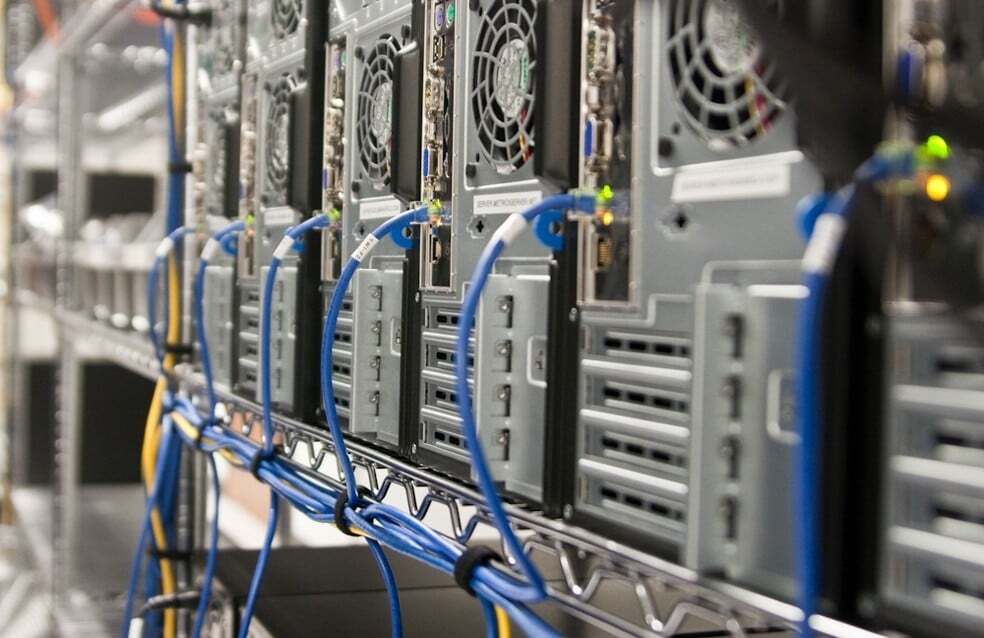DataBank, a data center owner working with some of the world's largest tech companies, has landed nearly $2 billion in equity from new and existing investors to fund the construction of U.S. data center campuses that cater to demand from artificial intelligence users.
The investment includes $1.5 billion from Australia's largest pension fund AustralianSuper, a new investor for DataBank, and $483 million from existing investors such as DigitalBridge. The deal marks AustralianSuper's first foray into the U.S. data center market and second investment with DigitalBridge.
The capital raised will fund construction for the next three years of DataBank's data center campuses, including its largest project yet in the Dallas area, Kevin Ooley, president and chief financial officer of DataBank, told CoStar News.
"This is a fully funded business plan from the equity side," Ooley said in an interview. "This will help us meet AI demand."
The workloads tied to the growing usage of AI is driving a "crunch right now" for data center space with DataBank and its rivals seeking to satisfy that demand with a flurry of investment and development, Ooley said. The boom has led to an "exciting time" in the industry, Ooley said.
The recently raised funds give DataBank a leg up as data center operators face development constraints because of the significant investments needed to move projects forward while there's a lack of available power and other challenges, S&P Global Ratings said in a report this week.
Still, DataBank is being wary of oversupply and taking a "measured approach" in building out its data center campuses in phases to match leasing with development, Ooley said.
Power needs
DataBank is planning to triple the power capacity of its real estate portfolio once it builds out more than 850 megawatts to meet accelerated demand for enterprise, cloud and AI workloads. Its new 480-megawatt data center campus in Red Oak, Texas, a suburb about 19 miles southwest of downtown Dallas, will be DataBank's largest by megawatts and acreage to date upon its completion.
The 292-acre tract is expected to include eight, two-story data centers with the initial phase of the facilities expected to be complete by mid-2026. DataBank's other U.S. projects include a 95-acre, 120-megawatt campus planned in the Atlanta region and an 85-acre, 192-megawatt campus planned in Northern Virginia.
For data center development, "power is the regulator or governor" as it becomes increasingly difficult to secure, Ooley said.
DataBank, with more than 70 data centers in 27 U.S. markets, has a history of being able to pivot when it comes to power needs. About two years ago, DataBank was unable to build space for tenants in Northern Virginia because there wasn't enough power for a data center but was able to offer the tenants space at DataBank's data centers in Atlanta where there was plenty of power, Ooley said.
"A lot is happening on the demand side and if the supply was that easy to get, these companies wouldn't be in that position — there's a bit of a bottleneck," he added. "About 80% of our growth comes from existing customers."
The firm's network has more than 10 expansion projects underway in markets including Kansas City, Kansas; Minneapolis; New York; and San Diego.
"We have a wide network of data centers that already have power," Ooley said, adding the company has "a good pulse" on the power issues facing the nation's utility companies with existing longstanding relationships in the major U.S. metropolitan areas.
While other data center operators are venturing into rural areas as they chase renewable energy and access to power to build AI-specialized data centers, DataBank wants to keep its operations in the major NFL markets, Ooley said.
"There are examples of a data center being placed near a wind farm in West Texas or the upper Midwest U.S., but that's not as appealing to us," Ooley said. "We are not that adventurous."
For example, DataBank has an AI customer in a facility in the New York area and if that demand ever evaporates, DataBank knows it can quickly lease the space to a financial services client. That capacity could be difficult to fill in a more remote region, Ooley said.
Funds
With the latest investment, DataBank has raised more than $4 billion in debt and equity over the last 12 months, including a $725 million credit facility in April and a $456 million securitization completed in February.
The $1.5 billion investment from AustralianSuper makes the pension fund a significant minority owner of DataBank with a seat on the Dallas-based company's board of directors.
Derek Chu, head of American real assets for AustralianSuper, said the firm's investment in DataBank comes at an exciting time in the U.S. company's growth plans with strong tailwinds in the sector. AustralianSuper manages more than $228 billion on behalf of its 3.4 million members from more than 478,000 businesses.
He cited "the unprecedented demand for cloud and AI infrastructure," in the statement.
For the record
Global law firm Milbank LLP advised AustralianSuper in its investment in DataBank. Citi was AustralianSuper's financial adviser. Thatcher & Bartlett LLP was DataBank's legal counsel and Bank of America Securities and Citizens Capital Markets Inc. were the financial advisers for DataBank.


